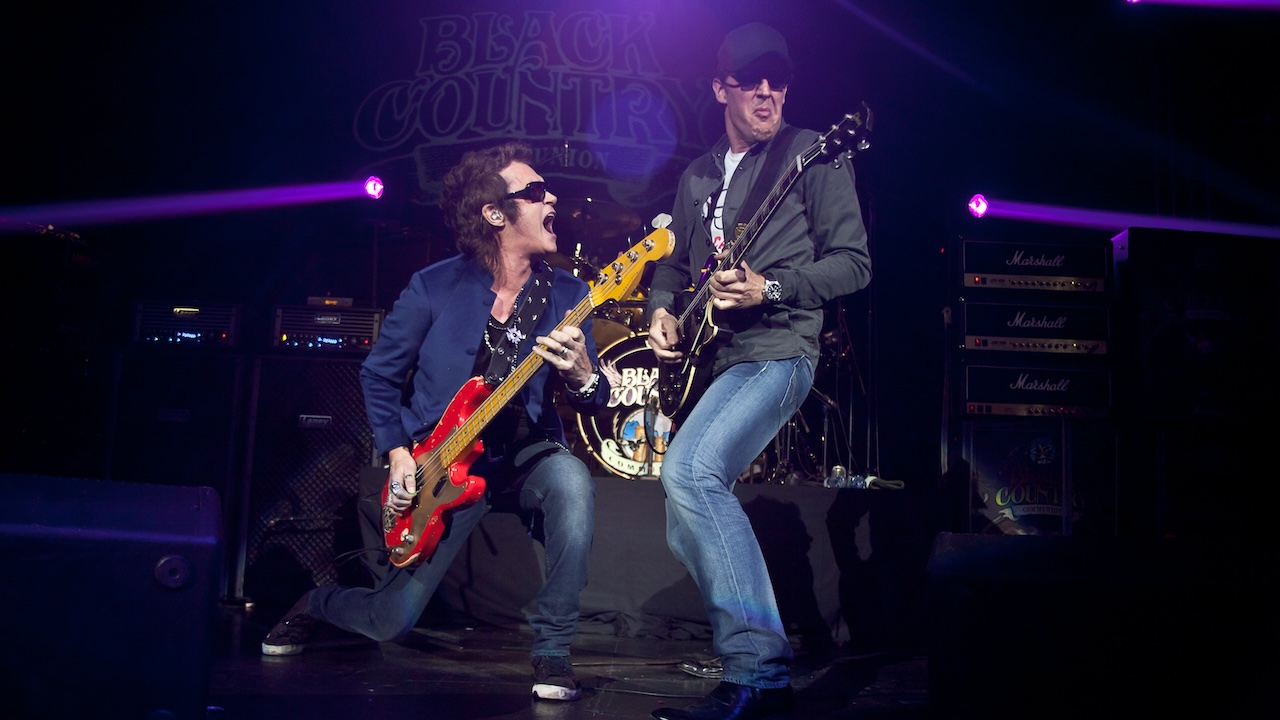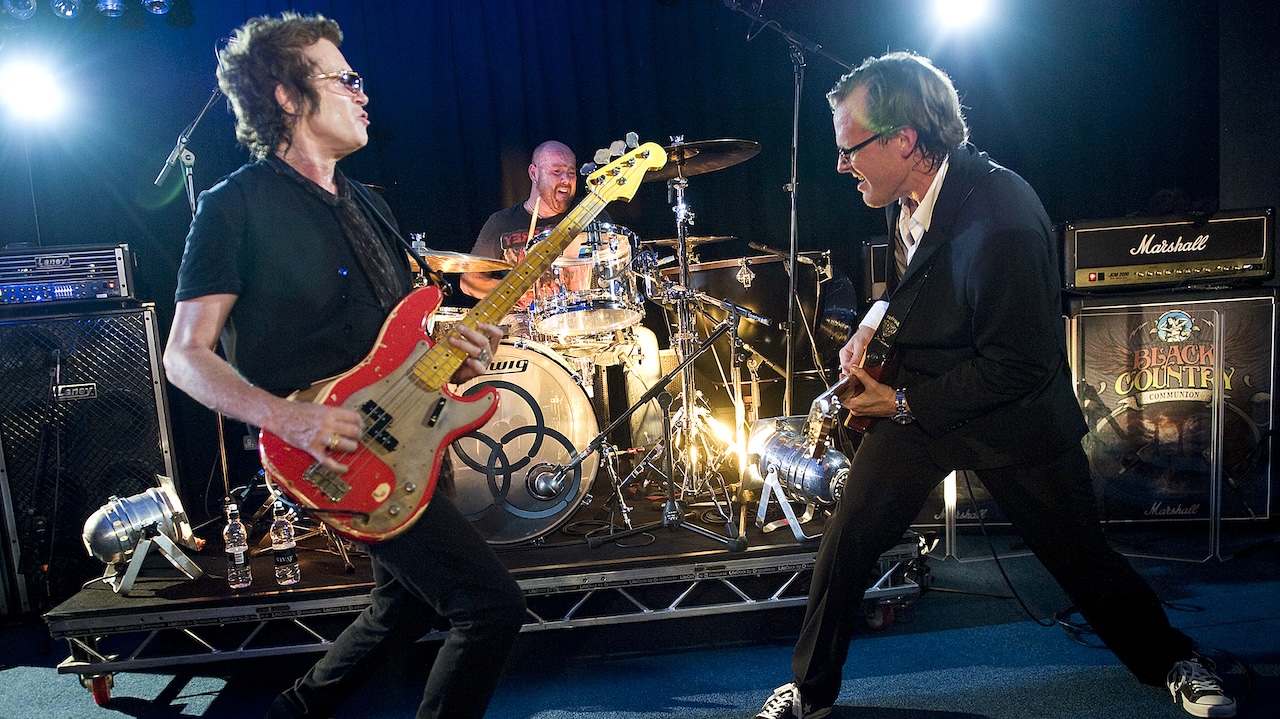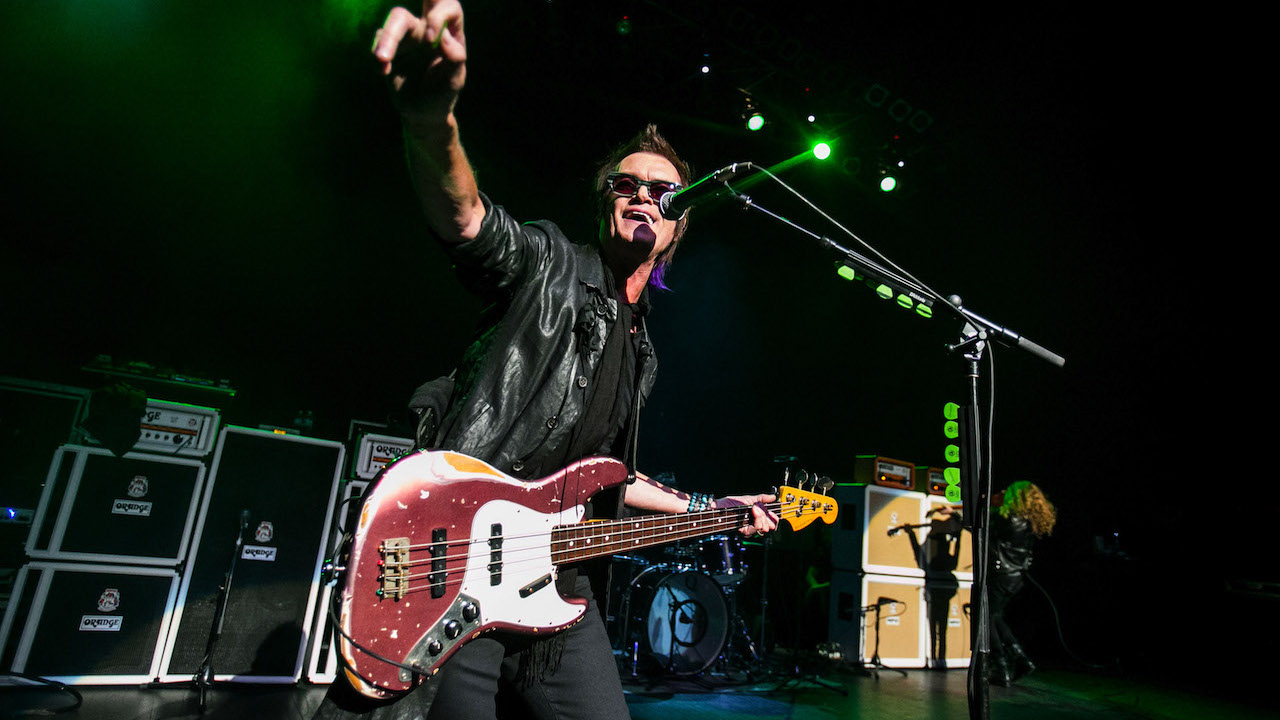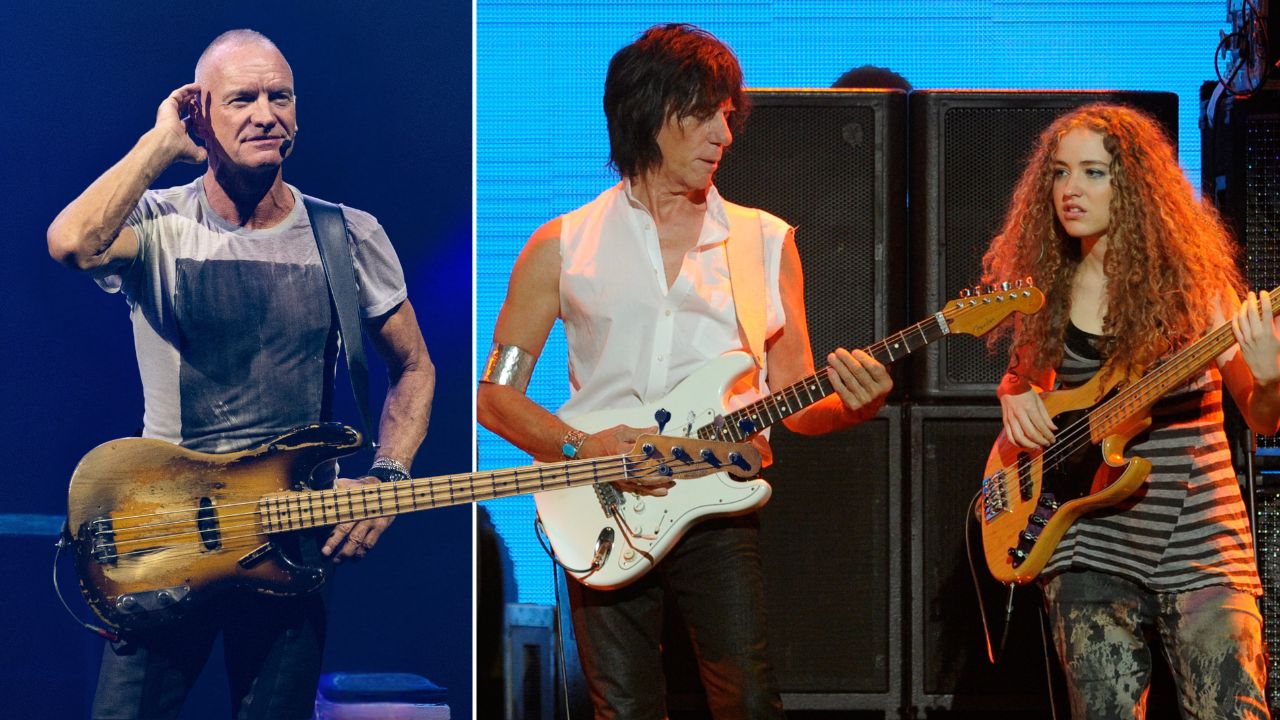“Joe and I had been hanging out, secretively making music, knowing that one day we'd do something. Four sessions later, we had an album”: How Glenn Hughes brought his low-end expertise into the spotlight with Joe Bonamassa and Black Country Communion

All the latest guitar news, interviews, lessons, reviews, deals and more, direct to your inbox!
You are now subscribed
Your newsletter sign-up was successful
Despite having a dozen solo albums to his credit, a mile-long resume that includes storied stints with Trapeze, Deep Purple, Gary Moore and Black Sabbath, and a crossover hit single, America: What Time Is Love? with UK electronica act The KLF, Glenn Hughes still lies somewhat under the radar.
Hughes may be acknowledged by many as ‘The Voice of Rock’ for his ecstatic singing, but what's truly underrated is his superb bass playing. It has been the anchor for several classic albums, including Deep Purple's Burn and Come Taste the Band, yet it often goes unacknowledged because of his vocal prowess.
The 2009 supergroup, Black Country Communion, finally brought his low-end expertise into the spotlight. From the incendiary opening riff of Black Country through the closing jam in Too Late for the Sun, it’s a bass-heavy album that illuminates the brilliance of Hughes’ playing.
Thanks to producer Kevin Shirley's keen ear, the vibe of the group with guitarist Joe Bonamassa, keyboardist Derek Sherinian, and drummer Jason Bonham relied heavily on Hughes's muscular P-Bass tone.
We spoke with Hughes in December 2010 following the release of a record that simultaneously reaffirmed his status as ‘The Voice of Rock’ while delivering a legitimate tour de force on bass guitar.
How did Black Country Communion come together?
“Joe was a fan of my work with Trapeze. We'd been hanging out, secretively making music, knowing that one day we'd do something. Then Kevin Shirley saw us play together at the House of Blues for a Guitar Center event and suggested we get a full band together.
All the latest guitar news, interviews, lessons, reviews, deals and more, direct to your inbox!
“He recommended Jason Bonham and Derek Sherinian, and so the next day we got them on the phone and agreed to meet for an exploratory session. When we got into Kevin's studio, we crossed our fingers and counted the beat off. Four sessions later, we had an album.”

Did you guys write the album together in the studio?
“I came up with the first four or five ideas, Joe came up with a couple of ideas, and we re-cut Medusa from Trapeze. The music was cut over four days, and in between the sessions Joe and I would go away and complete the writing process. It's a band, don't get me wrong, but Joe and I came up with most of the material because we didn't have a lot of time to mingle.”
It's a pretty bass-heavy record.
“Isn't it? I've been doing this a long time, and after all these years I still have to fight every engineer for my bass to be loud. But here with Kevin I didn't even have to ask. Let's face it – he's really good! Sonically, this album has to be the best I've ever done. I'm happy to hear that P-Bass growling away like it should.”
What was your setup?
“It's a '65 Fender Precision on most of it. On a couple of tracks it's a '51 reissue. I've been using the '65 since the Soul Mover record. It's got that undeniable P-Bass sound. I've got a lot of basses, but I always seem to go back to the P-Bass when I'm making this kind of music. It's the instrument for me in this genre.”
Do you consider yourself a vocalist who plays bass or a bass player who sings?
“I'm a natural bass player – an old school, groove player, but I'm underrated because people always talk about the voice, as they might with Paul McCartney or Sting. We're in the same category; we're all good bass players who happen to sing well.”
What's the writing process like for you?
“Sometimes I'll program a drum groove or I’ll play over chords. Not many bands do it, but I like jazz chords in rock; I like the way Yes used to write in 1971 and '72. I use a lot of chords that are usually a no-no for most rock guys – triads, major 7ths, and minor 9ths. I write a lot around minor 9 chords. That's a very sad, yet sexy chord.”
When you're crafting a song in which you're going to sing and play bass, how do the two inform each other?
“It's a lot easier now than it used to be. In the early '90s, I wrote not knowing that what I had just written for a record was pretty hard to play live. What I do now is write a lot on bass, and when I'm playing and singing up in my studio, I'll determine if I can do it live.”
“Soul Mover, Music for the Divine and First Underground Nuclear Kitchen are records that were cut to play live. My fans want to hear that material, so it's dangerous to not be able to play something live.”
How did Red Hot Chill Peppers drummer Chad Smith influence those albums?
“I look at Chad as the new John Bonham. I played with John in 1971, when he was with Zeppelin. I've worked with some great drummers, like lan Paice, Narada Michael Walden, Steve Gadd, and Kenny Aronoff, and Chad fits into that lineage.
“Chad's been my right arm; I call him my wife. In addition to playing drums, he's helped produce my records. He's very good at that. Chad is a great writer. He's obviously responsible for a quarter of the Chili Peppers' material, so he's a good guy to have around in the studio.”
How did you land the Deep Purple gig?
“They saw me play in Los Angeles at the Whiskey and at the Marquee in London. I had no idea they were looking at me as a potential bass player. They just kept showing up, as a lot of bands did in those days.”

“In the '70s, everybody would watch everybody, not like today where people don't bother. It was something everyone did, so I just figured they were digging my band, but then they asked me to join. I kind of freaked at first though because they just wanted me to play bass and not sing.”
In 1985, when you first worked with Tony lommi on Black Sabbath's Seventh Star record, you sang, but didn't play bass, correct?
“Oh my God, that was a disaster. It was a disaster on many levels. Mostly because I think I was drinking too much, but it was also a disaster because I wasn't born to sing Paranoid and stuff like that. It's not my thing.”
Certainly your relationship with lommi has evolved over the years. The song craftsmanship on the Fused record you did together is extraordinary.
“Those songs are phenomenal. Tony wrote some of those for Ozzy to sing on a Black Sabbath reunion record that they never did and I said, ‘I'll take that one, that one and that one,’ because I knew I could sing them. I knew I could take a song like Grace and make it Glenn and Tony rather than Sabbath.”
“Tony is a big advocate for me to be myself. He really likes the bluesy, soulful aspect of Glenn Hughes. You wouldn't imagine that, but he really does. But when you have Tony Iommi playing with you, you're going to play or sing in a direction that is appropriate. It's never going to be ‘funky Glenn’ with Tony lommi.”
Do you ever feel that your bass playing has suffered as a result of singing?
“No, I don't think so. There was another period, in 1994, when I put the bass down and I hired a bass player for my band and nearly went insane. Playing bass actually allows me to breathe better when I'm singing. It's also the sexiest instrument to play. There's nothing better than seeing a great bass player sing well. There are only a few of us, but it's a great club to be in.”



